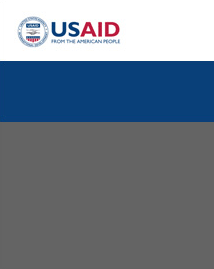Speeches Shim
Despite important human rights achievements, particularly in legislation and institutional capacity, insecurity and violence persist in the Central America region. USAID’s Regional Human Rights and Democracy project helps prevent human rights violations, strengthens the response to address human rights violations, and promotes sustainable early warning and protection systems for key vulnerable groups.
The project focuses on protecting human rights for the most vulnerable populations, including: children; youth; women; lesbian, gay, bisexual, transgender, and intersex (LGBTI) persons; and people with disabilities.
While recognizing that each country in the region is unique in terms of legal, political, economic, social, and cultural contexts, there are common human rights violations and challenges. The project improves awareness and understanding of human rights generally and helps countries in the region to meet their obligations under international law to respect, protect, and fulfil the human rights of all members of society.
The project facilitates coordination and strategic alliances among agencies that form part of the human rights protection systems in the region. Likewise, the project helps to improve the operating environment and public policies, so that human rights defenders, media, civil society organizations and other individuals can promote and defend human rights without fear of violence or retaliation.
Activities include training for grassroots and civil society organizations and government employees and facilitating exchanges and regional forums among legislators and civil society.
The project includes the design and operation of early alert systems and protection of the rights of internally displaced populations and migrants. This includes support for the creation of a single registry of missing persons for Guatemala, El Salvador and Honduras. The project is working with networks of civil society organizations to address the issue of forced internal displacement through research, advocacy, trainings, creation of educational materials and the documentation of cases in the region.
In addition, the project will establish specialized curricula in human rights for teachers and the dissemination of best practices, methodologies, and research data for more effective public policies at the national and regional level.
Finally, the project addresses the defense and improvement of labor rights in Central America, starting with a diagnostic on the status of labor rights in the region and trainings to build the capacity of labor unions to defend their rights. These actions have been conducted in close coordination with labor unions, different workers’ associations, employers, and governments. The project is also conducting a survey on the situation of informal workers in the commercial sectors of Guatemala, Honduras and El Salvador.


Comment
Make a general inquiry or suggest an improvement.